Kirti Monastery in the distant, scenic valley of Spiti in Himachal Pradesh, is known as the lighthouse of spiritualism and Tibetan Buddhism. This age-old monastery, known for its calm ambience and historical significance, draws visitors to this peaceful place for solace and closer bonding with their spiritual selves. The monastery lies in a breathtaking location, within the stark beauty of the Spiti landscape, amidst the views of the surrounding arid mountains and deep gorges, which makes it a perfect location for retreat in solitary communion away from the bustling concerns of the profane world.
Kirti Monastery Location

Photo: delfi de la Rua / Unsplash / Image For Representation Only
The Kirti Monastery is located in the Himachal Pradesh town of Tabo in the Spiti Valley. Situated at an elevation of 3,280 metres, or 10,761 feet, it serves as a significant religious hub in the region. The quickest way to get to this monastery is from Kaza, which serves as Spiti’s administrative centre. Tabo is roughly 47 km away from Kaza, and it takes only a short stroll from the village centre to get to the Kirti Monastery.
Suggested Read: Best Places To Visit In Spiti To Explore The Pristine Nature
How To Reach Kirti Monastery
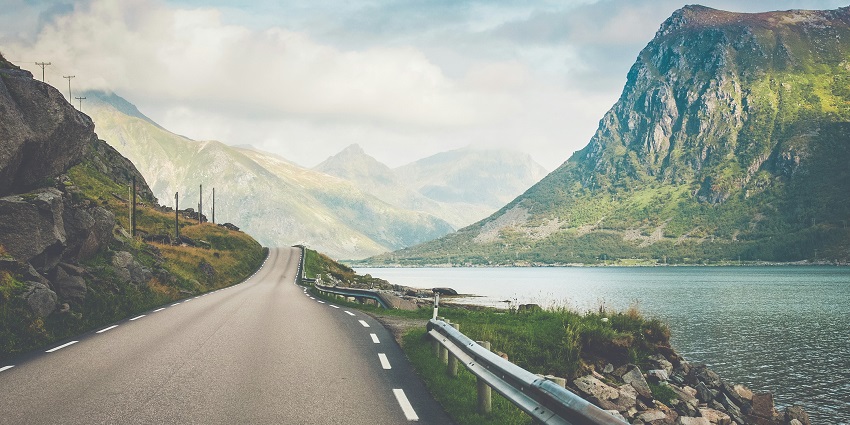
Photo: Nicki Eliza Schinow / Unsplash / Image For Representation Only
There are several ways to reach Kirti Monastery:
By Air: The nearest airport is Bhuntar Airport, located around 255 kilometres from Tabo. From the airport, travellers can hire a taxi or take a bus to Kaza and then continue by road to Kirti Monastery.
By Road: Tabo is well-connected by road from Kaza and Manali, with Manali being about 270 kilometres away. The journey includes a scenic drive through the Spiti Valley, offering stunning views of the surrounding landscape. Buses and taxis are available from Kaza to Tabo, with Kirti Monastery easily accessible from the village.
By Rail: The closest railway station is in Joginder Nagar, approximately 363 kilometres from Tabo. From the station, visitors can hire a taxi or take a bus to reach Spiti Valley and continue to the monastery.
Places To Visit In And Around Kirti Monastery
Your visit to Kirti Monastery can be enriched by exploring several nearby attractions. Some of these are:
1. Tabo Monastery
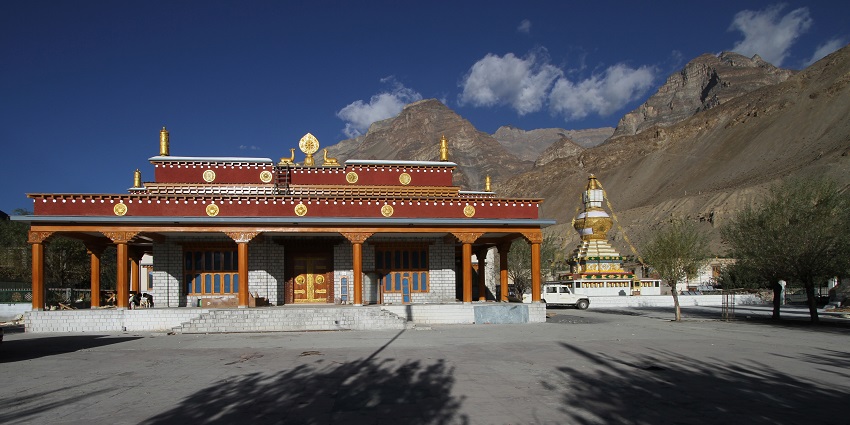
Photo: Gerd Eichmann / Wikimedia Commons
Tabo Monastery is often referred to as “Ajanta of the Himalayas.” It is a key monastery in India. Among the ancient and revered Buddhist monasteries in India, Adi Buddha Vajradhara enshrined this monastery in 996 A.D., when the Tibetan Buddhist king Yeshe-Ö controlled the place. Famous for its vast frescoes, stucco sculptures, and thangkas. It is considered an important religious place for followers belonging to the Gelug sect of Tibetan Buddhism.
Timings: 6 AM – 7 PM
Entry Fee: Free
Suggested Read: Spiti Monasteries You Should Explore On Your Next Trip To Himachal Pradesh
2. Dhankar Monastery
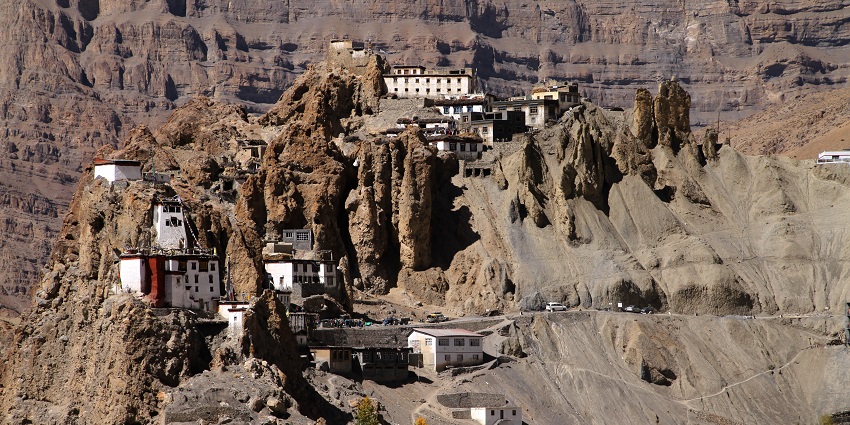
Photo: Gerd Eichmann / Wikimedia Commons
Dhankar Monastery, situated atop a high hill overlooking the confluence of the Spiti and Pin rivers, is a breathtaking sight that seamlessly blends historical significance with the allure of nature. Reaching a height of 3,894 metres, the Dhankar Monastery was formerly the centre of the former Spiti Valley institutions, a fort-monastery that was in charge of the Spiti Valley. Reportedly dating back over a millennium, this monastery is linked to the Gelugpa branch of Tibetan Buddhism.
Timings: 6 AM – 5 PM
Entry Fee: Free
3. Pin Valley National Park
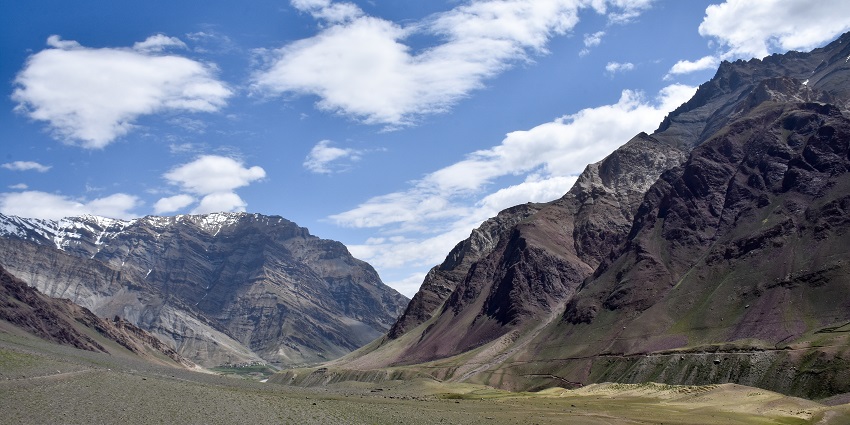
Photo: Timothy Gonsalves / Wikimedia Commons
With its unique view of the Trans-Himalayan region’s high-altitude habitat, it is a sanctuary for all animal and nature lovers. Pin Valley National Park was established in 1987 and is a portion of the Cold Desert Biosphere Reserve. In addition to having a diverse range of flora and wildlife, the park is home to several rare and endangered species, including the Himalayan griffon, snow leopard, Siberian ibex, and bharal (blue sheep). This rugged landscape is home to a wide range of therapeutic plants and alpine flora.
Timings: 6 AM – 6 PM.
Entry Fee: ₹50 for Indians and ₹200 for foreign nationals
Suggested Read: Visit The Spiti Valley In May To Enjoy The Rugged And Unparalleled Beauty In Himachal
4. Gue Monastery
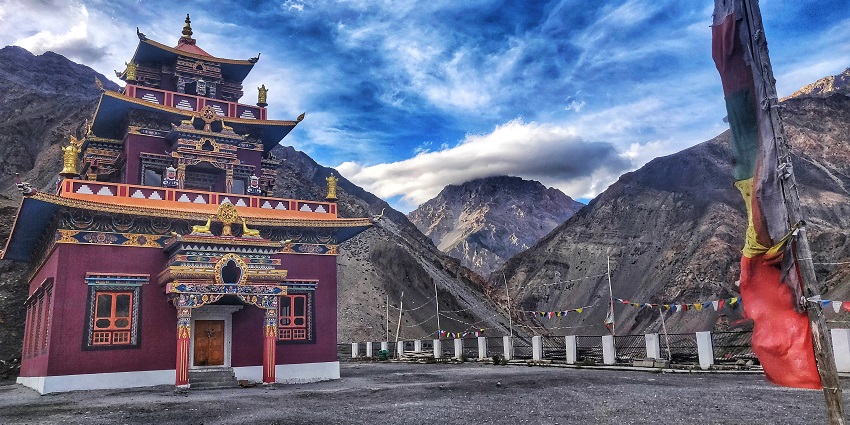
Photo: Rollinghopes / Wikimedia Commons
Gue Monastery is known for harbouring the naturally preserved mummy of a Buddhist monk. The mummy is said to be more than 500 years old. People come to relive the legend of a certain mummy—this monk, called Sangha Tenzin, who mummified himself in a seated position. What can be seen in the glass case in this monastery is the extremely well-preserved mummy, without any artificial embalming, and this makes Gue Monastery quite an interesting destination for spiritual seekers and curious travellers alike.
Timings: 6 AM – 6 PM
Entry Fee: Free
Where To Stay
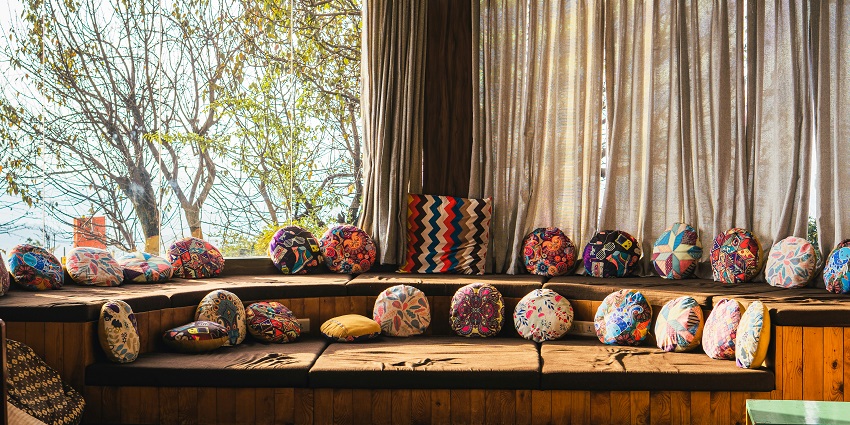
Photo: Saradasish Pradhan / Unsplash / Image For Representation Only
In Tabo and Kaza, accommodations range widely depending on preferences and price range, from simple guesthouses to ones that are comparatively more pleasant. For those seeking an authentic experience, homestays in Tabo provide an opportunity to enjoy traditional Spitian hospitality. Since homestays typically include home-cooked meals and individualised service, they offer an opportunity to get a glimpse into the local way of life and culture.
Suggested Read: Top Offbeat Places In Himachal Pradesh For Fresh Mountain Air
Where To Eat
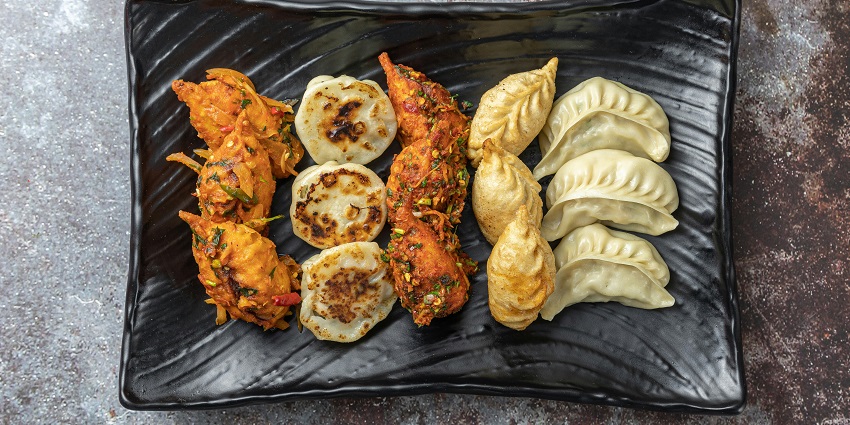
Photo: shiv singh / Unsplash / Image For Representation Only
Tabo and Kaza offer unique eating experiences with a strong proclamation for local Himachali and Tibetan cuisines, although the options remain somewhat limited. Places like Cafe Kunzum Top in Kaza, not only have a warm ambience, but the menu includes traditional dishes like thukpa, which is a kind of savoury noodle soup, and momos-steam or fried dumplings. These dishes are typical in this region and carry a strong regional Tibetan culinary flavour.
Best Time To Visit In Kirti Monastery
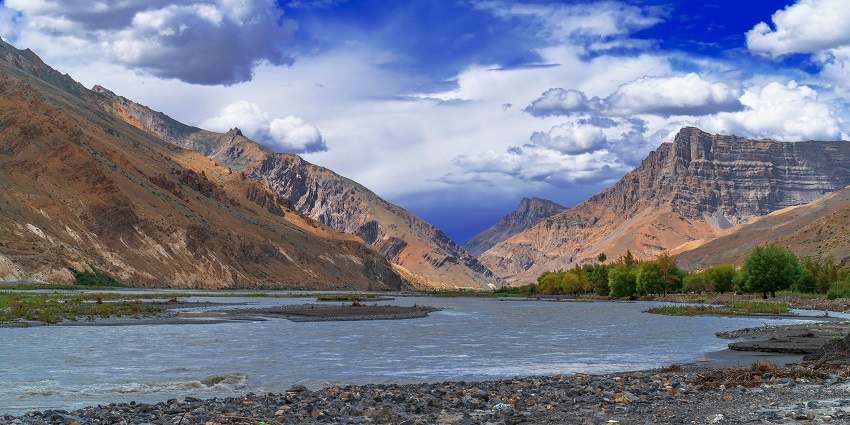
Photo: Rohit Dey / Unsplash / Image For Representation Only
The best time to visit Kirti Monastery is from June to September. These months offer better weather conditions in Spiti Valley, making the journey to this place quite comfortable and the roads leading up to this region much easier. This period is ideal because it falls in the summer season when the valley turns green, and the temperatures remain cool enough to carry out everyday exploration easily.
Suggested Read: Dharamshala Monasteries To Visit On Your Next Vacation
Other Factors To Consider
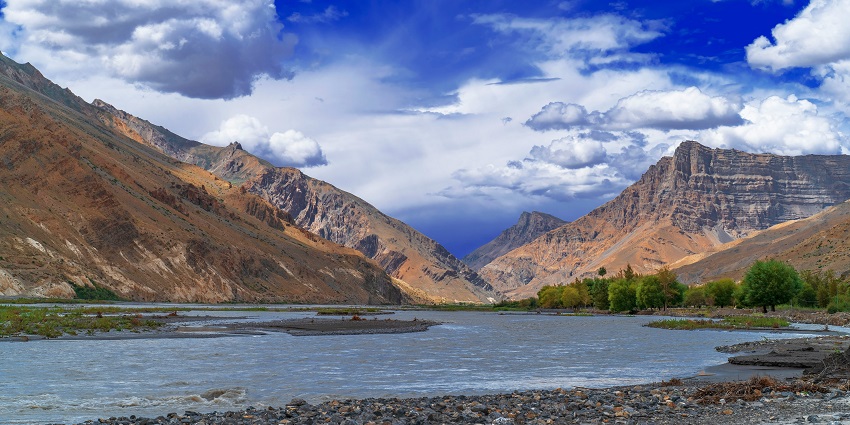
Photo: Mediamodifier / Unsplash / Image For Representation Only
Average Cost Of Trip
The cost of travelling to Kirti Monastery depends on factors such as accommodation, food, local transportation, and entry fees. For budget travellers, the daily cost can range from ₹1,500 to 2,500. Mid-range travellers might spend between ₹3,000 and 5,000 per day, while those seeking luxury can expect to spend over ₹7,000 daily, including high-end accommodation, dining, and private transportation.
Tips For Travellers
- Carry warm clothing, even in summer, as temperatures can drop significantly in the Spiti Valley.
- Book accommodation in advance, particularly during peak season, as options are limited.
- Respect local customs and traditions, especially when visiting religious sites.
- Bring sufficient cash, as ATMs and card payment facilities may be limited in the region.
- Engage with the local community to gain insights into their unique way of life and experience authentic cultural practices.
Kirti Monastery offers an enriching experience for visitors seeking peace and a connection with Tibetan Buddhist traditions. Whether you are a history enthusiast, a spiritual seeker, or simply someone looking to immerse yourself in the raw beauty of the Himalayas, a visit to Kirti Monastery will leave you with unforgettable memories. Plan your next journey with TripXL to explore this hidden gem in the Spiti Valley.
Cover Photo: Jialiang Gao / Wikimedia Commons / Image For Representation Only


 WhatsApp
WhatsApp
 Twitter
Twitter









